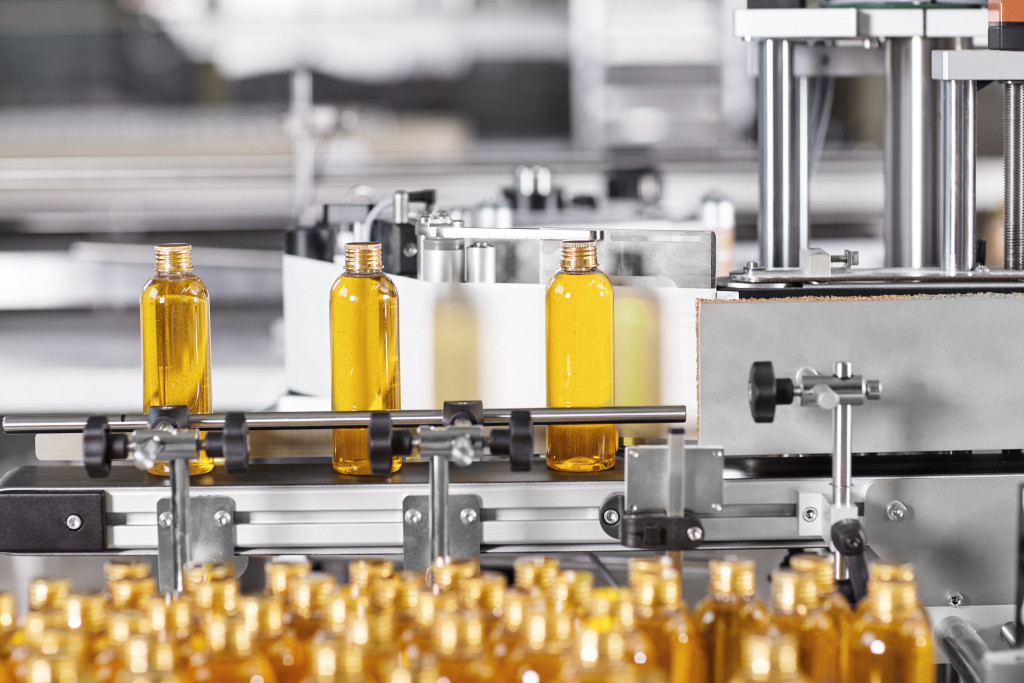- Chemical manufacturing requires careful consideration of raw materials and safety measures.
- Using quality control systems and selecting appropriate equipment ensures safety and efficiency.
- Selecting the right raw materials for chemical manufacturing is essential for producing quality products.
- Minimizing environmental impact is necessary for chemical manufacturers to promote sustainability.
- Staying compliant with legal and regulatory requirements is critical to protect workers and consumers.
Manufacturing chemicals is an important and complex process that requires careful consideration of several factors. From selecting the right raw materials to ensuring product safety, many aspects must be considered to ensure a successful outcome.
Additionally, manufacturers must consider the environmental impact of their processes and products and any legal or regulatory requirements they may face. This article will discuss some key considerations for safely and effectively manufacturing chemicals.
Using the right tools and equipment
Using the right tools and equipment is essential for successful chemical manufacturing operations. It is important to consider the type of chemicals you will be handling, as some require special handling and storage procedures for safety reasons.
For instance, a durable bolted bulkhead tank flange is necessary to deal with strong oxidizing chemicals. This specialized equipment helps to prevent leaks and spills, ensuring that these potentially harmful substances are safely contained.
Choosing the right tools and equipment ensures safety and that the manufacturing process is efficient and cost-effective, resulting in higher-quality products. As such, carefully considering the equipment used carefully is crucial in chemical production.
Ensuring product safety
Ensuring product safety is an essential aspect of manufacturing chemicals. Here are some tips on how to do so:
Creating effective quality control systems
Creating effective quality control systems is a crucial step in manufacturing chemicals. These systems ensure that all products are consistently produced at the highest level of quality, free from defects and contaminants.
A well-designed quality control system establishes procedures for testing and validating raw materials, monitoring and controlling production processes, and inspecting finished products. This helps minimize the risk of adverse reactions or safety issues for consumers while reducing the likelihood of costly product recalls or legal liabilities for manufacturers.
In addition, a comprehensive quality control system can help to enhance a company’s reputation for reliability and safety in the marketplace. Manufacturers need to prioritize developing and implementing effective quality control systems to ensure their products safe and consistent production.
Selecting the right raw materials
Selecting the right raw materials for the manufacturing of chemicals is a crucial step in the process of producing high-quality products. Without carefully considering the characteristics of each material, manufacturers risk producing subpar chemicals with inconsistent results.
Different raw materials have different properties, such as melting points, boiling points, reactivity, and purity levels, which can affect the efficacy and safety of the final chemical product. Proper raw material selection can also help avoid costly mistakes like contamination or poor yields during production.
Therefore, it is essential for manufacturers to have a solid understanding of the characteristics of their raw materials and to carefully consider how those materials will interact with one another in the manufacturing process. Overall, selecting raw materials is a critical aspect of chemical manufacturing that requires careful consideration and expert knowledge.
Minimizing environmental impact

As the world becomes more conscious of the impact of manufacturing on the environment, the industry must consider the environmental impact of its practices. This is particularly significant in the case of chemical manufacturing, as chemicals can create numerous harmful consequences to ecosystems.
The key to minimizing environmental impact when producing chemicals is to take a holistic view of the process, identifying and addressing areas with the most significant impact. This starts with the choice of raw materials and the design of the production process.
By doing this, manufacturers can reduce energy and water usage, and minimize waste and emissions, and other environmental impacts. Doing so not only safeguards the environment but also helps to create a positive brand reputation for the company that demonstrates an eagerness to promote sustainability.
Following legal and regulatory requirements
Manufacturing chemicals is a complex process that requires diligence and attention to detail, especially when complying with legal and regulatory requirements. These requirements ensure the workers’ safety in the process and the consumers who will use the final product. One important aspect of compliance is obtaining the necessary permits and licenses from government agencies, which can also guide the specific regulations for each chemical.
Additionally, manufacturers must ensure that their processes and facilities adhere to safety standards and environmental regulations to reduce the risk of accidents and minimize the environmental impact. By taking these steps, manufacturers stay within the law, protect their reputation, and build trust with their customers.
Accounting for related health risks

Manufacturing chemicals can pose a significant risk to human health if not properly handled and manufactured. It is crucial to consider the related health risks associated with these chemicals to ensure the safety of those who work with or encounter them.
Accounting for these risks involves evaluating the toxicity and potential exposure of the chemicals during manufacturing. This involves identifying the hazards, assessing the risks, and implementing appropriate control measures.
Failure to properly consider these health risks can harm the environment and individuals. Thus, it is imperative to carefully consider the health risks associated with chemical manufacturing and take the necessary steps to mitigate them.
These are key considerations for manufacturers to consider when manufacturing chemicals. By following these measures, you can guarantee a safe operation, meet regulations, and reduce environmental harm.

